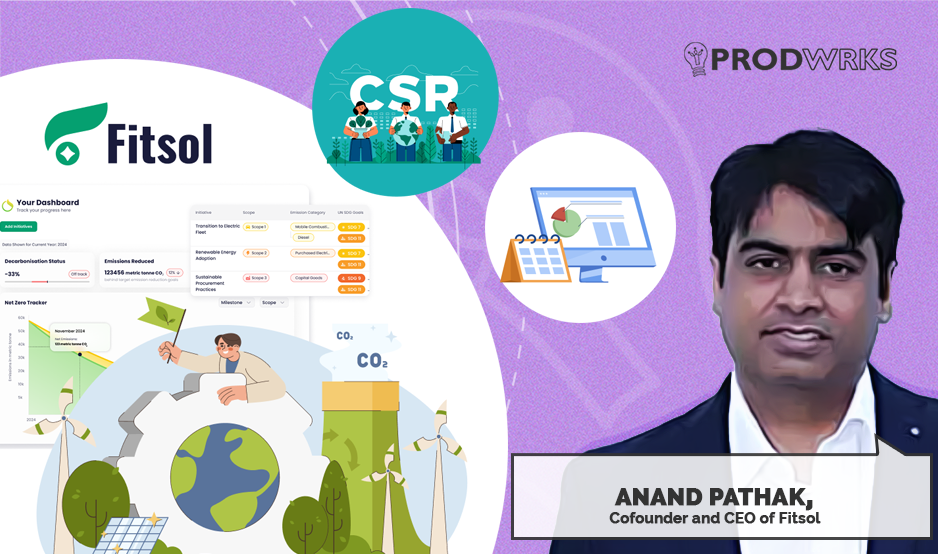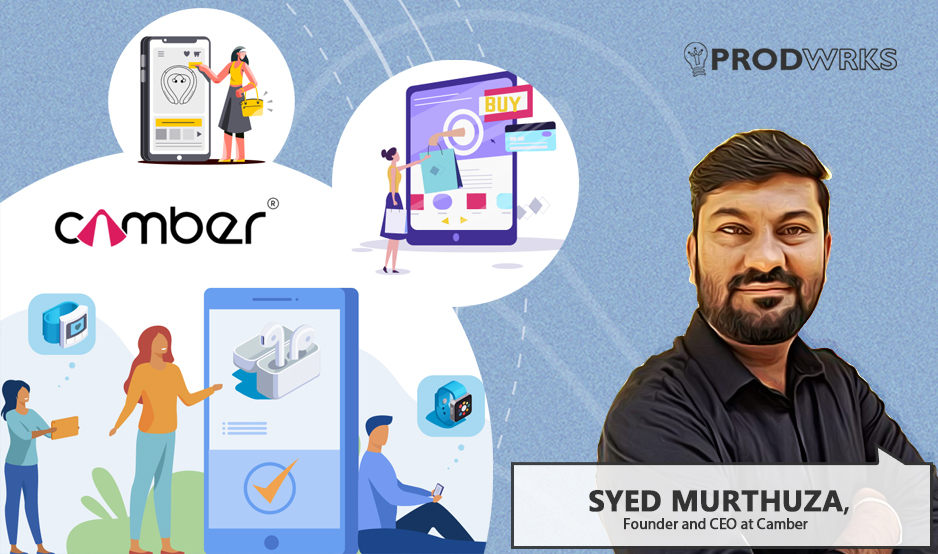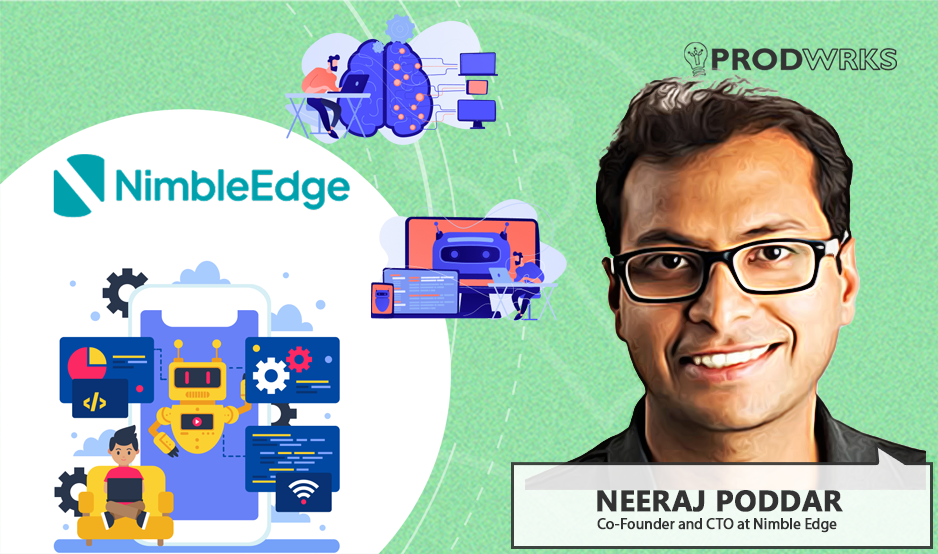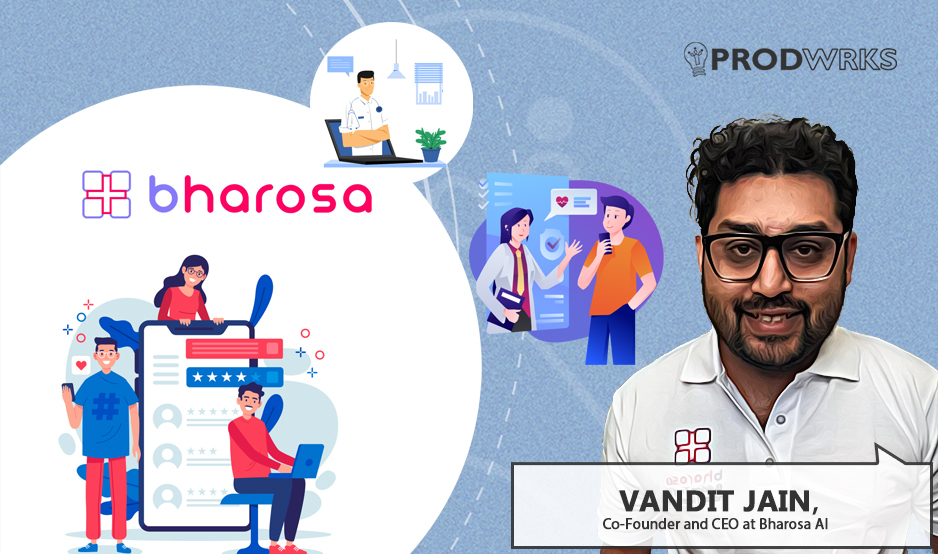
For decades, sustainability has been framed as a corporate responsibility, a regulatory burden, and a necessary cost centre to build a greener future. But what if that entire paradigm was wrong? What if reducing a company’s carbon footprint wasn’t a cost? What if it could also save thousands of dollars in operational budget?
This is the disruptive premise at the heart of Fitsol, a Gurugram-based climate-tech startup. At the helm is founder and CEO Anand Pathak, who doesn’t view decarbonization as just an environmental goal. He sees it as a strategic lever for profitability with his unique TCO² funda.
TCO² stands for Total Carbon Optimization + Total Cost Optimization, and it’s changing the way companies think about sustainability.
“Wherever we reduced carbon footprint for our customers, we have improved the process. We have brought in the efficiency in the system, which has resulted in cost reduction also,” Anand explains, his voice resonating with the conviction of someone who has seen the formula work time and again.
“In a few cases, we have reduced the cost by 30 to 40% for the customer by focusing on ESG. We broke the notion that reducing your carbon footprint has to come with a cost.”
Founded in 2022, Fitsol has quietly emerged as a critical partner for some of India’s largest industrial players, including Hero MotoCorp, Royal Enfield, and Hindware. Armed with a powerful AI-driven solution (Kyoto) and a hands-on implementation service, the company is on a mission to completely change how industries approach decarbonization.
Fitsol is Anand’s Personal Mission for a Net-Zero Future
“Just for the sake of my daughter, I thought I should leave NCR and go to my hometown to do farming, or whatever. My daughter's future should be safe and secure.”
“I started thinking about how I can solve this not only for my daughter, but for future generations. How can we solve this problem for the manufacturing and supply chain industry?”
This question lingered as he climbed the corporate ladder from a role in the CEO’s office at TVS Supply Chain Solutions to leading the sustainable packaging vertical for the multi-billion-dollar Samvardhana Motherson group. He was designing and implementing solutions that made supply chains more efficient, but the environmental undercurrent was growing stronger.
The turning point came at the 2021 UN Climate Change Conference, COP26, in Glasgow, where India pledged to reduce its carbon emissions by one billion tonnes. Anand’s employer, Motherson, like many global giants, made a public pledge to reduce its carbon footprint. Anand was tasked with finding the tools to make it happen. He began a global search for tech companies that could help a manufacturing behemoth trace and tackle its emissions.
What he found was a gaping hole in the market. There were no effective ways to accurately measure emissions across most industries.
Understanding Emissions - Scope 1, Scope 2, and Scope 3
Emissions can be divided into three categories – Scope 1, Scope 2, and Scope 3. For readers who might be new to this, think of it this way:
Scope 1: These are the direct emissions from sources your company owns or controls. For a manufacturer, this is the fuel burned in company vehicles or factory boilers.
Scope 2: These are indirect emissions from the generation of purchased energy. This is the electricity, steam, heating, and cooling you buy from a utility provider.
Scope 3: This is the big one. It encompasses all other indirect emissions that occur in a company’s value chain. This includes everything from the raw materials you purchase, the transportation of your goods (by third-party logistics), business travel, employee commutes, and even how your customers use and dispose of your products.
Anand’s search revealed that for manufacturing companies, 90% of emissions are generally Scope 3. For instance, Apple and Tesla have over 90% emissions in Scope 3, because they generally outsource a lot of their activities.
“Everything outsourced, in simple terms, generally falls under Scope 3,” he explains.
Anand says, “Not a lot of startups or tech companies were trying to solve this. And that's how I thought, okay, this is a gap in the market.”
From Carbon Accounting to a Decarbonization Engine
Founded by Anand Pathak, Akshay Tandon, Manoj Sharma, Sunil Bansal, and Vikas Kalra, Fitsol’s mission is to provide the tools, the insights, and the execution support to enhance sustainability for manufacturing and supply chain-intensive industries.
The first part of Fitsol is their AI-driven SaaS platform, named Kyoto – a nod to the 1997 protocol that first established international emissions reduction targets. Kyoto acts as the diagnostic lab for a company’s carbon health. It measures emissions across all three scopes, collecting vast amounts of data to produce a comprehensive “Carbon Health Report.”
The second part, after diagnosing a company’s carbon health, is to improve it. Traditionally, this process was sluggish with a consultant-led approach. A company would hire experts or agencies to analyze historical data, deliver a hefty report with recommendations, and then walk away.
“The problem with this approach is that there is no real-time feedback and real-time solutioning. After two years, they realize that out of 10 recommendations from the consultant, only two have worked out, and eight have not. So, they’d call another consultant.”
Kyoto, in contrast, is designed to be the real-time doctor for improving carbon health.
Once they collect data in the platform, the platform starts showing real-time solutions, instead of waiting for an annual exercise. The platform analyzes the incoming data and provides actionable recommendations. If a company implements a change, the new data flows back into Kyoto.
“If the change of data is positive according to what they had expected, the ROI is good, we tell them, ‘Okay, keep on continuing.’ If it's not good, we tell them, ‘Okay, this is not working out. Here’s a new solution that you can work on. This creates a dynamic feedback loop, turning a static, year-end report into a live, evolving strategy.”
Finally, Anand comes to the most crucial part of any health journey: the implementation. This is where Fitsol’s second major offering, Decarbonization-as-a-Service (DaaS), comes into play.
The Kyoto platform might recommend a company switch to sustainable packaging, optimize its logistics routes, or source greener raw materials. But where does a company, whose core competency is manufacturing auto parts or textiles, find these specialized, often nascent, solutions?
“They need to go and identify partners who can help them,” Anand says. “They need to work with maybe thousands of startups… and trust them in the process, because most of them are startups. They don't have the trust factor.”
Recognising this implementation challenge, and leveraging the founding team’s 60-plus years of combined experience in logistics and supply chain, Fitsol decided to bridge the gap themselves.
Fitsol offers services in sustainable logistics, sustainable packaging, and waste circularity, directly executing the solutions their platform recommends. This hands-on DaaS model, combined with a curated marketplace of other vetted solution providers, closes the loop from measurement to action to impact.
TCO₂ - Linking Carbon Reduction with Cost Reduction
For many Indian companies, sustainability was perceived as a cost center, a box-ticking exercise driven by compliance or customer pressure. The government’s BRSR (Business Responsibility and Sustainability Reporting) framework, mandatory for the top 1,000 listed companies, was a driver, as were demands from European and American clients.
But to achieve true, widespread adoption, Fitsol needed to change the narrative by justifying the spending on sustainability and directly linking it to increase the company’s operational efficiency and reduce costs. The breakthrough came when they cracked a formula they now call TCO₂.
“So TCO is total carbon optimization across the supply chain, and then total cost optimization is, again, TCO,” Anand explains. “We tell the customers that we are reducing your carbon footprint across the supply chain, but we are also reducing your cost.”
Anand provides a compelling example. “One of our auto suppliers, a light manufacturer, used to move parts over a distance of 1,000-plus kilometres. They used to send 1,000 parts in a truck in their existing use-and-throw packaging, and 6-7% parts were damaged during transportation.”
Fitsol’s team, through Kyoto’s analysis, identified a multi-pronged solution:
- Packaging: They designed a sustainable, reusabl packaging solution.
- Density: The new packaging design was more efficient, allowing them to fit 1,200 parts in the same truck instead of 1,000 through better part planning and packaging planning.
- Logistics: The 20% increase in part density meant 20% fewer truck trips were needed to move the same volume of goods. They also facilitated a switch from diesel trucks to more sustainable and cost-effective CNG vehicles.
- Damage: The robust, reusable packaging reduced product damage to almost zero.
The results were transformative. “We not only reduced their complete carbon footprint, but we also reduced their overall cost by 20%-plus in this case. The number of trips came down, and costs also came down. Packaging was earlier use-and-throw, and is now reused.”
“Most of the struggle for ESG heads has been that they are being seen as a cost centre. But when we approach and tell them, ‘Buy our solutions, and with our recommendations, you will reduce your cost,’ it becomes a Eureka moment for them. They become our nodal point inside the company and start recommending us to different stakeholders within.”
Decoding Kyoto: An AI-Powered, Modular Sustainability Engine
“For a manufacturer, Scope 3 data is with a lot of their smaller suppliers. In India, a lot of them are SMEs and MSMEs, and they don't have a proper database.”
Fitsol’s approach is multi-layered. For mature suppliers, they use direct API integrations. For others, they have systems where data can be dumped in an FTP folder, and their AI automatically collects, cleans, and formats it. For the smallest suppliers, they provide extensive training and a simplified dashboard.
But perhaps the most impressive application of AI is in reporting. The BRSR report in India, for instance, has around 1,500 fields to be filled. “It’s not easy,” Anand admits. Fitsol’s AI is trained on thousands of existing reports.
“Our system can fetch data from the internet and auto-populate. Right now, we have achieved 20% data collection accuracy in the BRSR, meaning the user doesn't need to fill it.”
The AI also suggests qualitative answers and auto-populates duplicate fields, reducing the time to generate a complex report from weeks to just a day or two.
The platform is also intentionally modular. A client can subscribe to only Scope 1 & 2 accounting, or only Scope 3, or just the reporting module. This flexible, “à la carte model” lowers the barrier to entry and allows companies to start their sustainability journey wherever their most pressing need lies. Unsurprisingly, the biggest traction is in their core area of expertise, which is Scope 3 emissions.
Building Moats in a Crowded Sea
The ClimateTech space is heating up, with over 100 companies globally in the accounting and reporting space alone, including giants like SAP. So how does a startup like Fitsol build a defensible moat?
Anand points to three key areas:
1. AI Tuned with Deep Domain Expertise: Fitsol’s advantage is their AI that’s trained on the specific, nuanced data of the Indian auto and manufacturing sectors, guided by founders with decades of hands-on experience.
Anand says, “Our know-how translates into making AI tools and recommendations, which are not easily available in our competitors.”
2. The Supplier Network Effect: This is perhaps their most powerful moat. When Fitsol onboards a large manufacturer (an OEM), they gain access to its entire web of Scope 3 suppliers, sometimes over a thousand of them.
“One supplier is a supplier for 10 different companies. So it becomes easy for us to pitch to the other nine companies.”
3. The DaaS and Marketplace Ecosystem: The suppliers they work with for accounting often become customers for their DaaS offerings. Furthermore, a supplier with a great sustainable product (e.g., recycled aluminum) can be vetted, scored with Fitsol’s proprietary ESG scoring system, and then listed on their marketplace.
“We might start recommending them to some other companies,” Anand says
“We have taken a cue from two or three different scoring systems across the globe, and we have tried to build the best of those,” Anand reveals.
The Road Ahead
Currently, with a team of 82 and monthly revenues approaching ₹5 crores, Fitsol is demonstrating that its mission for decarbonization in manufacturing and supply chains is also a powerful business. While pure SaaS revenue from the Kyoto platform currently makes up only 2-3% of their income, the DaaS model is a high-growth engine.
They project hitting a ₹100 crore annual revenue run rate, and as they expand to Europe and the Middle East, they anticipate the higher willingness to pay for SaaS in those markets will significantly boost that side of the business.
Anand is also looking at emerging technologies like IoT for more accurate, real-time data collection (“What was the driving style, what was the mileage?”) and blockchain for verifying carbon credits, a market he sees exploding in the future.
For the young founders looking to enter this space, Anand offers a piece of advice born from experience. He suggests steering clear of the crowded accounting space and instead focusing on building niche, AI-driven products for specific decarbonization modules or developing innovative hardware products to provide green alternatives.
“Right now, we are highly dependent on China and outside countries for most of these products,” he notes. “I think there is a scope for India to grow as a manufacturing nation by developing this kind of alternate product.”



